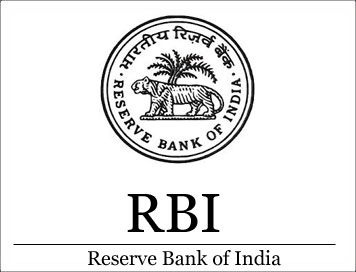
Revised Process of recruitment of Officers in Grade-‘B’- (DR)
It has been decided by the Reserve Bank of India to introduce
a new scheme of selection for recruitment of officers in Grade-‘B’ (DR), from
recruitment year 2015. Under the new scheme of selection the examination will be
computer based (Objective type with Multiple Choice Question pattern) and
consists of two phases, viz., Phase-I and Phase-II, followed by Interview. While
Phase-I examination will continue as per existing Phase-I examination for
Grade-‘B’ (DR), Phase-II examination will consist of three papers of which two
will be compulsory papers and one optional paper. The compulsory papers are
Paper-I on ‘English’ and Paper-II on ‘Economic and Social Issues’. The optional
Paper- Paper-III will have options of subjects, viz., ‘Finance & Management’ or
‘Economics’ or ‘Statistics’. In Phase-II the paper on ‘English’ will be
descriptive type and computer based, i.e. to be typed on computer screen with
the help of the keyboard. Prospective candidates are advised that Phase-II of
the examination will be conducted within two to three weeks of Phase-I of the
examination. The new scheme of selection is furnished in the Annex-A. The
Syllabi of all the papers are furnished in Annex-B.
New Scheme of Selection for recruitment of officers in Grade-
‘B’
A. Examination Pattern
(i) Examination will consist of two phases, viz. - Phase-I & Phase-II
followed by interview.
(ii) Phase-I examination will be objective type with Multiple Choice Questions (MCQs).
The Phase-I examination will continue as per the existing Phase-I examination
for Grade-‘B’ (DR). There are four modules in Phase-I, viz.- General Awareness,
English Language, Quantitative Aptitude and Reasoning.
(iii) Phase-II examinations will consist of three papers in MCQ pattern (except
Paper-I) – viz. Paper-I on English (writing skills); Paper-II – Economic &
Social Issues and Paper-III – (optional subjects) – Finance & Management/
Economics/ Statistics.
(iv) Candidates will be required to write all the papers online.
(v) Only successful candidates of Phase-I will appear for Phase-II examination
on a later date.
(vi) Based on the results of Phase-II examinations candidates will be
shortlisted for interview.
(vii) Final selection will be through merit lists which will be prepared by
adding marks secured by candidates in Phase-II (Paper-I + Paper-II + Paper-III)
and Interview.
B. Duration of Examinations and Distribution of Marks
(i) Phase-I : Objective Type - 2 hours - 200 marks
(ii) Phase-II: Three Papers - 300 marks
- Paper-I – online- English-( writing skills)- 1½ hours - 100 marks
- Paper-II – Economic and Social Issues – 1½ hours – 100 marks
- Paper-III - Optional Paper (Finance & Management/ Economics/ Statistics)
– 1½ hours - 100 marks
(iii) Interview: 50 marks
The interview will continue in its existing format.
C. Educational Qualification
A Minimum of 60% marks (50% in case of SC/ST/PWD) or equivalent in Bachelor’s
Degree as well as in 12th and 10th standard examinations.
D. Age Criteria and Age Relaxation in upper age limit
(i) The present age criteria of “Between 21 to 30 years” will
be retained.
(ii) For M. Phil and Ph. D candidates the upper age limit will be 32 and 34
years, respectively.
(iii) As per extant practice age relaxation will be available to experienced
candidates viz. candidates having experience as an officer in Commercial Bank/
Financial Institution in Public Sector as also candidates with prior experience
in Reserve Bank of India, to the extent of number of years of such experience
subject to a maximum of three years. For such candidates, upper age limit should
not exceed 33 years including experience. For experience, probationary period
will not be reckoned.
(iv) There are relaxations in upper age limit as per statutory requirements and
for the staff.
As per existing practice cumulative age relaxation will not be available in
combination with any items mentioned at (ii) (iii) & (iv).
E. Number of attempts:
The maximum permissible number of attempts (which were applicable for
candidates belonging to Unreserved/General Category) has been increased from 4
to 6.
For detailed information, candidates may carefully read the detailed
advertisement which will be uploaded on RBI website at the time of recruitment
process.
:: Syllabus ::
1. English (Writing Skills):
The paper on English shall be framed in a manner to assess the writing skills
including expression and understanding of the topic.
2. Economic and social Issues:
Growth and Development – Measurement of growth: National
Income and per capita income – Poverty Alleviation and Employment Generation in
India – Sustainable Development and Environmental issues. Economic Reforms in
India – Industrial and Labour Policy – Monetary and Fiscal Policy –
Privatization – Role of Economic Planning. Globalization – Opening up of the
Indian Economy – Balance of Payments, Export-Import Policy
– International Economic Institutions – IMF and World Bank –
WTO – Regional Economic Co-operation. Social Structure in India –
Multiculturalism – Demographic Trends – Urbanization and Migration – Gender
Issues – Social Justice : Positive Discrimination in favor of the under
privileged – Social Movements – Indian Political System – Human Development –
Social Sectors in India, Health and Education.
Suggested reference material:
Books:
- Indian Economy: Uma Kapila.(Series of Books)
- Indian Economy: Mishra Puri. (Latest Edition)
- Growth And Development: Devraj Ray
- Sociology: C.N. Shankar Rao
News Papers:
- Economic Times
- Hindu
- Business Standard
Weekly/Monthly Magazines/Bulletins /Reports:
- Economic and Political Weekly
- Southern Economist
- Yojana
- Business India
- RBI Bulletins
Reports:
- World Development Report
- Economic Survey of India
3. Finance and Management:
(A) Finance
(a) Financial System
- Regulators of Banks and Financial Institutions
- Reserve Bank of India- functions and conduct of monetary policy, Banking
System in India, Financial Institutions – SIDBI, EXIM, NABARD, NHB, etc.